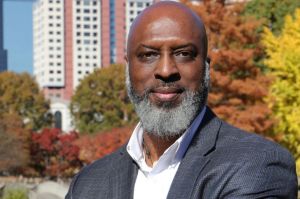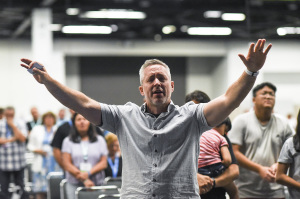Missiologist: Don't Be a Cul-De-Sac on Great Commission Highway
Missiologist Ed Stetzer on Thursday visited southern California to try to persuade thousands of pastors to get involved in what he considers the most effective form of evangelism – church planting.
Though church planting has become the "hot big thing" in recent years, it's still something most churches in the country are not engaged in.
"I want to ask all of you to believe in church planting," Stetzer, a sought-after speaker, said at Saddleback Church in Lake Forest, Calif., during the "Radicalis: For Radicals Only" conference.
According to Stetzer, who serves as president of LifeWay Research, only 28 percent of Protestant churches are involved in some way in church planting. The percentage drops to a mere three percent when it comes to being the "primary sponsor" of a church.
Stetzer recognizes that many pastors do not think church planting is for them but he's convinced that starting new churches is central to societal transformation and worldwide evangelization.
"I'm convinced," said the missiologist, "that God's calling you to church planting and you're checking out of that call because you're thinking 'no, I'm called to church, not to church planting.'
"When did those things become separate things?"
He stressed, "If you love Christ, you'll love his church. And if you'll love his church, you'll want to see more of them."
Citing a revived trend, Stetzer said church planting today has become "a default evangelistic methodology." More churches, including mainline denominations, are resurrecting the process to reach the unchurched. Studies have found that new churches are more effective in leading people to Christ than older ones. Pointing to one statistic, Stetzer said the membership to baptism ratio of new church plants was found to be 14 to 100.
"Don't let your church be a cul-de-sac on the Great Commission highway," Stetzer exhorted. "God wants more."
Starting new churches isn't easy, Stetzer acknowledged, and many aren't willing to make the sacrifice. Moreover, coming to conferences like Radicalis where they hear a line-up of pastors who founded what are now successful megachurches may be even more discouraging for some.
"I recognize that some of the speakers (Rick Warren, Andy Stanley, Mark Driscoll, Perry Noble) you've heard ... actually may be a little bit intimidating in your involvement," Stetzer said.
"I sometimes call conferences like this 'ministry pornography' – it's an unrealistic depiction of an experience you're never going to have that distracts you from the real and glorious thing," he said to laughter.
"I think if you go away convinced that the only way you can make a difference for the Kingdom of God is planting a church that looks like this (Saddleback Church) ... then what we've done is a disservice to the Kingdom of God," he pointed out. "Don't be pushed away from church planting because you hear these implausible stories ... Instead, say God has called me to plant a church. It doesn't matter if it grows into a cathedral or if it meets at a coffee shop. What matters is that the Gospel is faithfully proclaimed, people are changed by the Gospel, and churches plant churches that plant churches that plant churches."
They don't have to be perfect, he added. "But I think we need more churches and they're going to be imperfect. Their imperfection does not discount or devalue God's use of them."
Pastors and lay people were further urged not to hesitate.
"If we wait until we can get to a place where we can send out thousands, then we'll miss dozens," Stetzer noted.
In a final push to convince pastors to engage in church planting, the missiologist recalled how a fellow church planter described the process.
"[It's] like having a baby. It's bloody, it's messy and a lot of times it's really painful. But at the end of the day, there's something beautiful that comes out as the result of it. And once you have one you just want to have more, and you forget about the pain."
The Radicalis conference concludes Friday.





























